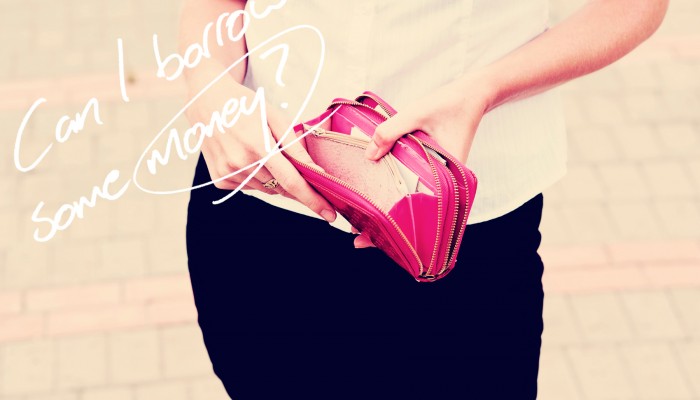- Related Articles
- 6 Alternative Ways To Make Money
- How To Be Savings Savvy
- Credit Where It’s Due
- Banking 101
- Mo’ Money
Different ways to borrow a buck
Borrowing To Buy
Credit cards
Credit cards allow you to spend money you don’t have and, while they offer protection on larger purchases (where the bank covers the cost of refunds or replacement if something goes wrong), every-day spending can quickly rack up large debts. Always check whether the interest rate is worth the spend and whether you can afford to pay off the balance in full each month. And never withdraw cash on them — it will cost you a heck of a lot more in charges.
Store cards
Store cards are like credit cards that tie you down to just one store or brand. They’re designed to be appealing (money off, discounts and reward points) but usually have interest rates high enough to give you a nose bleed.
Hire purchase
Hire purchase is a kind of rental agreement where you pay a deposit, a fee and monthly amounts until you’ve paid off the value of your goods — you don’t technically own anything until you’ve made the final payment. If you miss payments in the meantime, you risk penalty charges, paying more interest and, at worst, losing your goods.
Borrowing To Plug A Gap
Bank loans
Unlike the Student Loan, bank loans involve a credit search, which is why they’re harder for students to come by — and they usually require you to have a regular income. Also unlike the Student Loan, the banks will want to be repaid regardless of how much, or whether, you’re earning later on, with tough penalties for missing payments.
Payday loans
As the name implies, payday loans cover the shortfall between your pay packet and your outgoings — you repay it when you next get paid. While it sounds easy on paper, they’re really not designed for students and are best avoided unless you’ve got a regular income.
Pawn shops
Shops like Cash Converters are actually pawnbrokers. You take in collateral (goods, jewellery, merchandise) and are offered a loan in exchange. If you repay the loan and interest by the deadline, you get your goods back. If you can’t repay the loan, you can extend the terms or surrender your goods entirely — in which case the pawnbroker can sell them to someone else, usually for more than you were offered.
ANY debts you crank up will be listed on your credit history
Credit That You Might Not Think Is Credit
Your mobile phone contract, your TV licence and even utility bills are a form of credit and come with consequences if you miss payments. Even though they’re ‘unsecured’ (i.e., not secured against your home or other possessions), any debts you crank up will be listed on your credit history, making it harder to get other kinds of credit in future.
Maxed Out?
If you’ve already maxed out your other options, don’t take on more credit to get yourself out of a debt spiral until you’ve talked to someone who knows the score on student finance — start with your university or SU’s welfare adviser or get advice from nasma.org.uk
